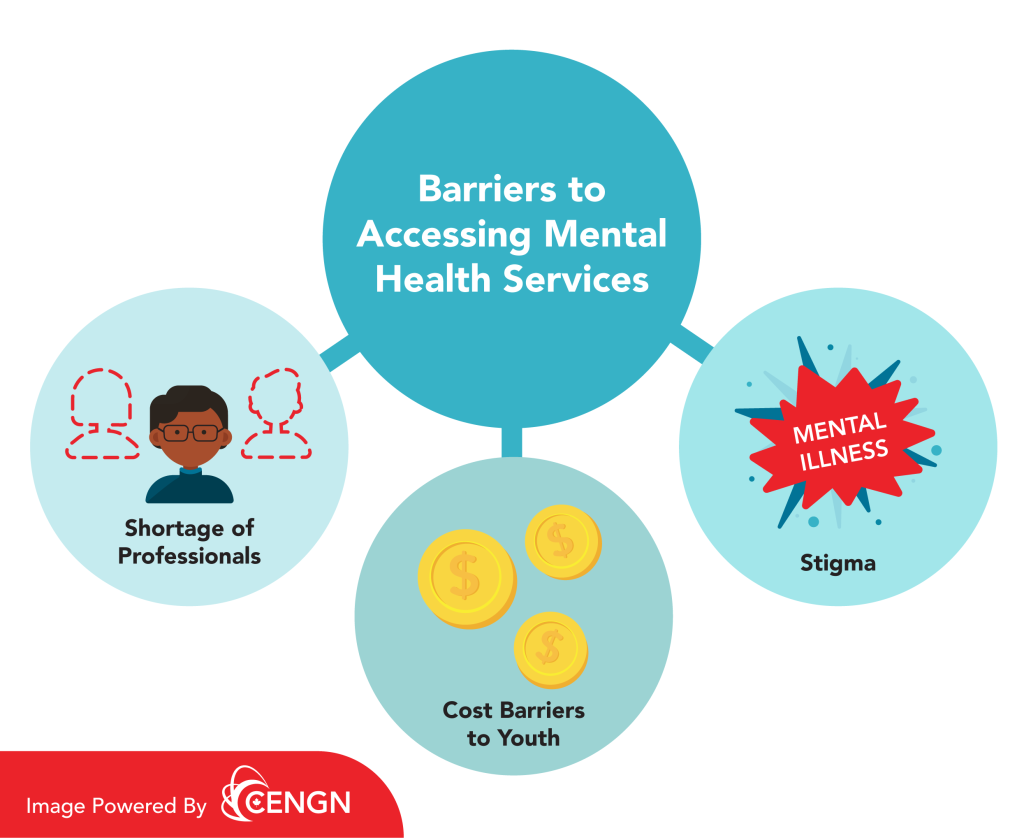Investing In Our Future: The Importance Of Accessible Mental Healthcare

Table of Contents
The Economic Impact of Inadequate Mental Healthcare
The lack of accessible mental healthcare carries a significant economic toll, impacting individuals, families, and society as a whole. Untreated mental health conditions lead to substantial financial losses and strain on resources.
Lost Productivity and Increased Healthcare Costs
Untreated mental illness significantly impacts productivity and inflates healthcare spending. The consequences are far-reaching:
- Higher rates of absenteeism and presenteeism: Employees struggling with mental health issues often miss work entirely (absenteeism) or are present but less productive (presenteeism), resulting in decreased output for businesses.
- Increased risk of chronic physical health problems: Mental health conditions often co-occur with physical ailments, leading to increased healthcare utilization and costs. Conditions like cardiovascular disease and diabetes are more prevalent in individuals with untreated mental illnesses.
- Higher utilization of emergency services: Mental health crises frequently result in costly emergency room visits and hospitalizations, placing a strain on already overburdened healthcare systems.
- Reduced overall economic output: The combined effect of lost productivity, increased healthcare costs, and premature mortality due to untreated mental illness results in a significant reduction in overall economic output.
The Burden on Families and Caregivers
Families providing care for loved ones with untreated mental health conditions face immense emotional and financial strain. The burden is substantial:
- Loss of income due to caregiving responsibilities: Caregivers often need to reduce their work hours or leave their jobs entirely to provide support, resulting in lost income and financial instability.
- Increased stress and emotional toll on family members: The constant worry and emotional labor involved in caregiving can lead to burnout, stress, and even mental health challenges for family members.
- Financial burden of treatment costs if access is limited: Even when treatment is available, the high cost of therapy, medication, and other services can create significant financial hardship for families, particularly if insurance coverage is inadequate.
The Social and Personal Consequences of Limited Access
Beyond the economic impact, limited access to mental healthcare has profound social and personal consequences, creating a ripple effect throughout communities.
Stigma and Discrimination
The pervasive stigma surrounding mental illness is a major barrier to seeking help. This stigma manifests in various ways:
- Fear of judgment and social isolation: Individuals often fear negative reactions from family, friends, and colleagues, preventing them from seeking help and support.
- Reluctance to disclose mental health challenges: This reluctance to discuss mental health concerns hinders access to appropriate care and support networks.
- Difficulty accessing employment and social opportunities: Individuals with mental health conditions may face discrimination in the workplace and social settings, impacting their opportunities for employment, education, and social inclusion.
Increased Risk of Suicide and Self-Harm
Limited access to mental healthcare significantly increases the risk of suicide and self-harm. This underscores the urgency of addressing this crisis:
- Lack of support and resources can exacerbate mental health crises: Without access to timely intervention and ongoing support, individuals struggling with mental health conditions are at a higher risk of experiencing severe crises, potentially leading to self-harm or suicide.
- Early intervention and accessible care are crucial in preventing tragic outcomes: Providing accessible and affordable mental healthcare is essential for early intervention, which can significantly reduce the risk of suicide and self-harm.
Strategies to Improve Access to Affordable Mental Healthcare
Improving access to affordable mental healthcare requires a multi-pronged approach that addresses systemic issues and promotes positive change.
Increasing Funding and Resources
Increased investment in mental health services is paramount:
- Expansion of community-based mental health centers: Investing in community-based centers improves accessibility for individuals in underserved areas.
- Increased access to affordable medication and therapy: Lowering the cost of mental healthcare makes it more attainable for individuals with limited financial resources.
- Training more mental health professionals: Addressing the shortage of mental health professionals is crucial for meeting the growing need for care.
Reducing the Stigma and Promoting Mental Health Literacy
Tackling the stigma associated with mental illness is crucial for encouraging help-seeking behavior:
- Public awareness campaigns: Raising awareness through campaigns can help destigmatize mental illness and promote help-seeking behavior.
- Educational programs in schools and workplaces: Educating individuals about mental health conditions and available resources empowers them to seek help and support for themselves and others.
- Promoting open conversations about mental health: Open dialogue helps normalize discussions about mental health, reducing the sense of isolation and shame often associated with mental health challenges.
Utilizing Technology to Expand Reach
Technology offers innovative solutions to improve accessibility:
- Teletherapy sessions: Online therapy sessions allow individuals in remote areas or with mobility limitations to access mental healthcare.
- Online support groups and resources: Online platforms provide opportunities for individuals to connect with others facing similar challenges, fostering a sense of community and support.
- Mobile apps for mental health self-management: Apps provide tools and resources to help individuals manage their mental health and track their progress.
Conclusion
Investing in accessible mental healthcare is not just a moral imperative, but an economic necessity. The economic consequences of inaction are significant, as are the social and personal costs. By increasing funding, reducing stigma, and leveraging technology, we can create a system where everyone has access to the quality mental healthcare they need and deserve. Let's work together to ensure that everyone has access to the quality care they need and deserve. Contact your representatives and demand better mental healthcare access for all. Advocate for affordable mental healthcare, improving mental health services, and better access to quality mental health support for our communities.

Featured Posts
-
 Arsenals Champions League Hopes Under Threat Claims Souness
May 03, 2025
Arsenals Champions League Hopes Under Threat Claims Souness
May 03, 2025 -
 Valorant Mobile Tencents Pubg Studio Developing A Mobile Version
May 03, 2025
Valorant Mobile Tencents Pubg Studio Developing A Mobile Version
May 03, 2025 -
 Fortnite Fans Outraged Latest Item Shop Update Criticized
May 03, 2025
Fortnite Fans Outraged Latest Item Shop Update Criticized
May 03, 2025 -
 Millions Stolen Through Executive Office365 Account Compromise
May 03, 2025
Millions Stolen Through Executive Office365 Account Compromise
May 03, 2025 -
 Footballer Georgia Stanway Honors Girl Killed In Tragic Pitch Accident
May 03, 2025
Footballer Georgia Stanway Honors Girl Killed In Tragic Pitch Accident
May 03, 2025
